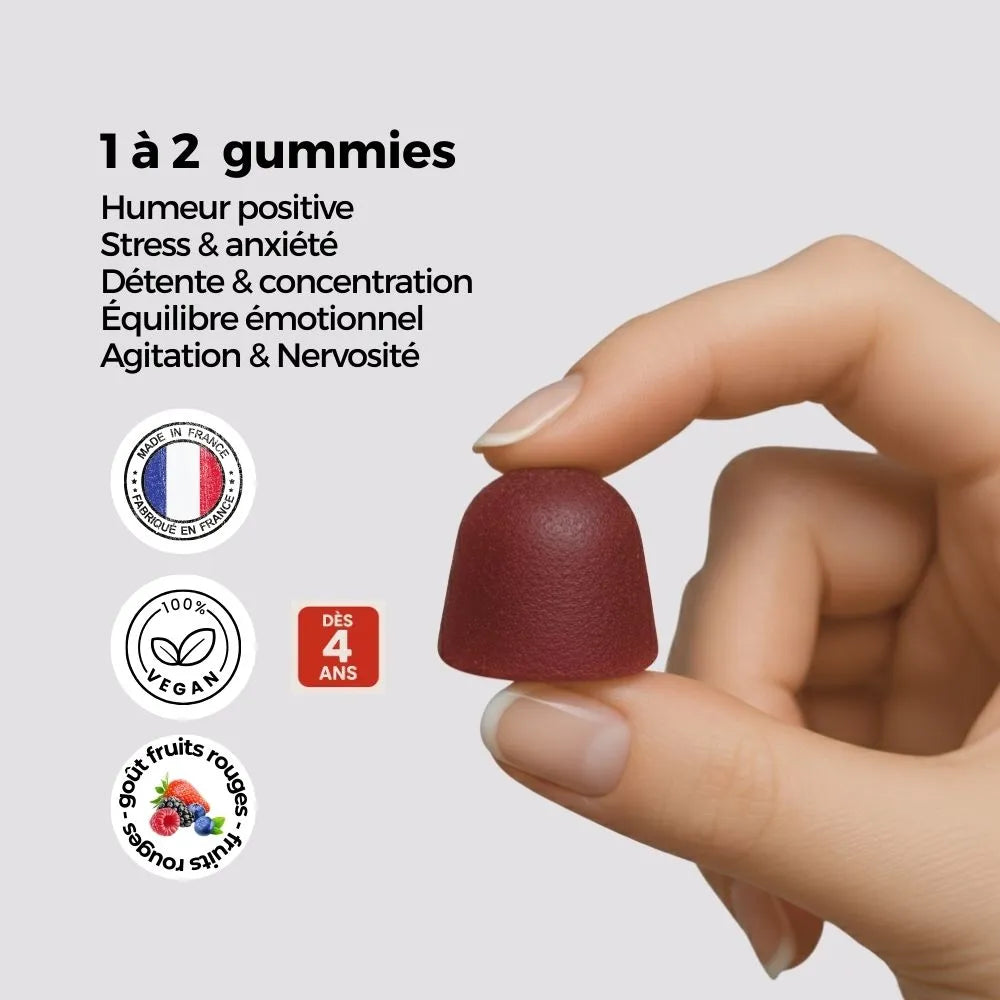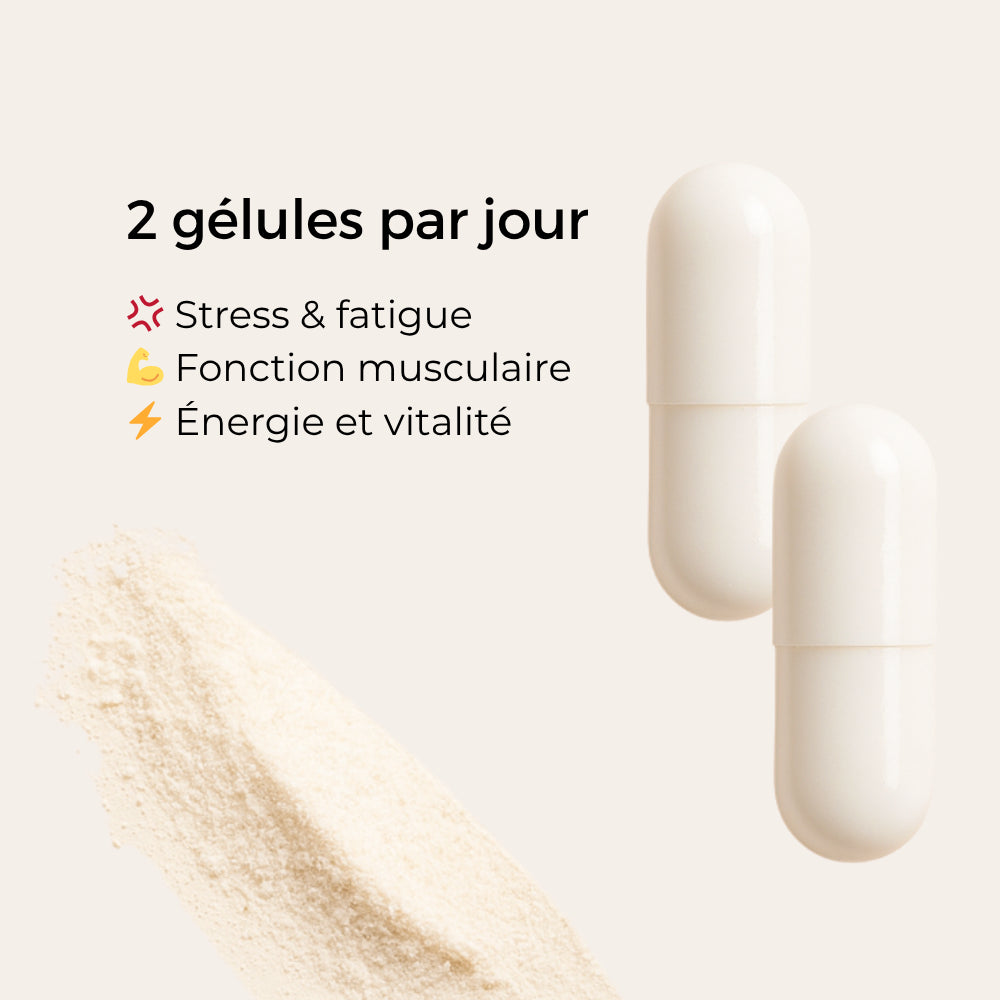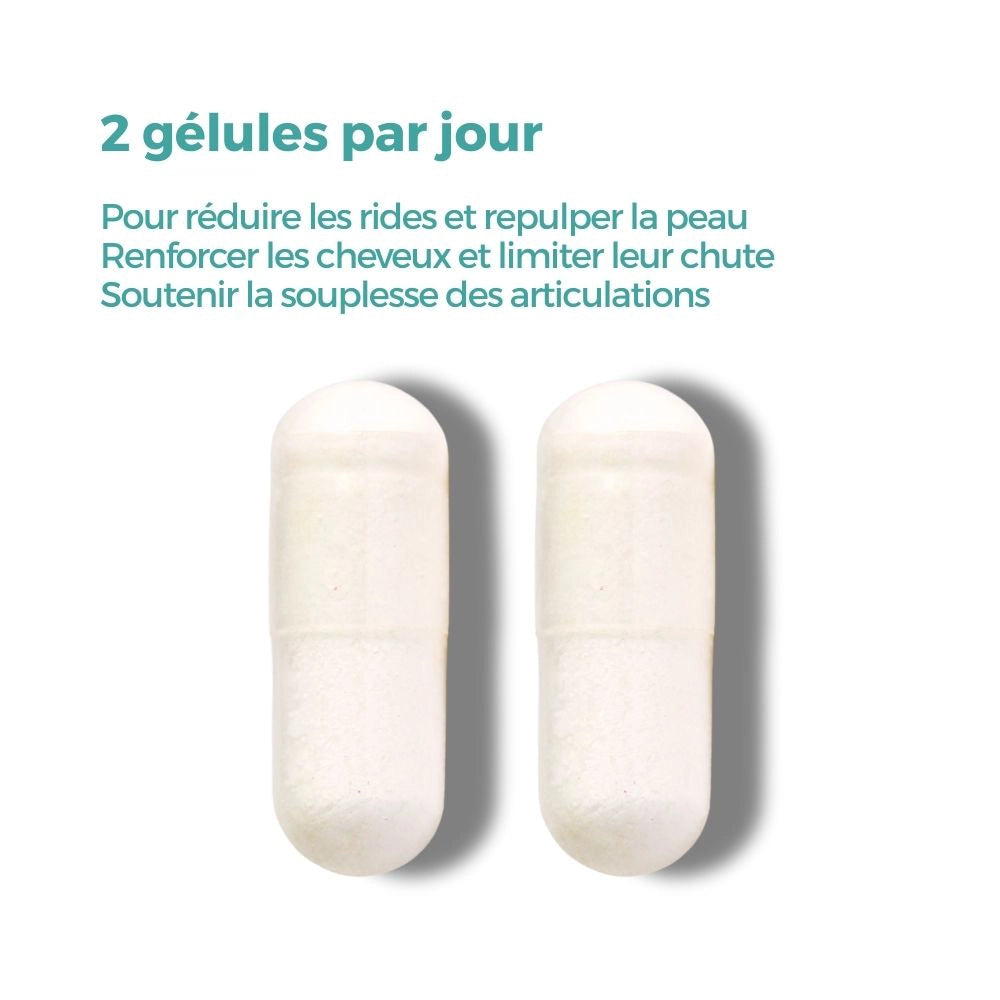
How does stress affect your health?
Stress is much more than just a minor inconvenience. This natural bodily reaction, when it becomes chronic, can have profound and lasting repercussions on your overall health. From your immune system and cardiovascular function to your hormonal balance and mental well-being, no aspect of your body is spared. Let's explore together how stress affects your body and what natural solutions can help you limit its harmful effects.
What is stress? Understanding this vital mechanism
Stress is an age-old psychological and physiological defense mechanism that allows us to react to difficult or threatening situations. When your brain perceives danger, it triggers a cascade of hormonal and nervous reactions to mobilize your resources. This reaction is accompanied by various physical manifestations such as persistent fatigue, muscle tension, particularly in the shoulders and neck, digestive problems, heart palpitations, frequent headaches, sleep disturbances, and sometimes a loss of appetite or, conversely, food cravings.
Important to remember: Stress is not a disease in itself, but it is a major risk factor for many pathologies, including psychosomatic, cardiovascular and metabolic disorders.
Good stress vs. bad stress: knowing the difference
Acute stress: a temporary ally of performance
"Good stress," also known as acute stress, acts as a natural stimulant. It helps focus your attention, improve your performance, and increase your motivation when facing a challenge. Moderate stress can thus improve your results in an exam or in a demanding professional context, while also stimulating your memory and learning capacity. This form of stress temporarily increases your alertness and responsiveness, which can be beneficial in the short term.
Chronic stress: a silent danger to your health
When stress becomes overwhelming and prolonged, it transforms into chronic stress , a real threat to your health. This form of pathological stress leads to relationship difficulties and interpersonal conflicts, fosters a pessimistic outlook and recurring negative thoughts, results in progressive social isolation, causes disorganization and procrastination, and can lead to the development of harmful addictions such as tobacco, excessive caffeine, sugar, or alcohol.

How does chronic stress affect your physical health?
Your immune system: weakened defenses
Chronic stress profoundly disrupts your immune system by impairing the production of cytokines, the essential messengers that orchestrate your natural defenses. This disruption makes you particularly vulnerable to viral and bacterial infections, which explains why stressed individuals suffer more frequently from recurring colds and flu. Stress also slows wound healing and can worsen chronic inflammatory conditions such as eczema, psoriasis, or asthma. In the long term, a constantly overtaxed immune system even increases the risk of developing autoimmune diseases.
Your heart and blood vessels: constant pressure
Prolonged exposure to stress keeps your cardiovascular system in a constant state of alert. Cortisol, the stress hormone, causes a continuous increase in heart rate and blood pressure. This constant tension promotes the development of chronic hypertension and significantly increases the risk of heart attacks and strokes. Stress can also cause heart rhythm disturbances and accelerate atherosclerosis, the hardening of the arteries that impairs blood flow.
Your digestive system: when stress disrupts the gut
The link between stress and the digestive system is particularly close, to the point that scientists refer to the gut as the "second brain." Stress directly affects your gut microbiota and digestive motility, causing bloating, a feeling of heaviness, nausea, and loss of appetite. These seemingly benign symptoms can develop into more serious conditions such as irritable bowel syndrome, peptic ulcers, or a chronic alternation of diarrhea and constipation that significantly impacts your quality of life.
Your muscles and joints: painful tension
Stress keeps your muscles in a state of constant tension, particularly in the back, shoulders, neck, and jaw. This chronic muscle tension leads to persistent neck and lower back pain, tension headaches, and frequent migraines. Some people even develop bruxism, the nighttime grinding of teeth that prematurely wears down tooth enamel. Over time, this tension can progress to serious musculoskeletal disorders that limit your daily mobility.
Your metabolism: weight gain and risk of diabetes
Chronic stress disrupts your metabolism in several ways. Cortisol promotes fat storage, particularly in the abdominal area, the most dangerous zone for your cardiovascular health. Simultaneously, stress triggers irresistible cravings for comfort foods high in sugar and fat, while your satiety hormones, such as leptin and ghrelin, are disrupted, artificially increasing your feelings of hunger. This explosive combination often leads to gradual weight gain. Furthermore, cortisol constantly raises your blood sugar levels by releasing stored glucose, which can lead to insulin resistance and significantly increase your risk of developing type 2 diabetes.
The impact of stress on your mental and hormonal health
Anxiety, depression, and cognitive disorders
Chronic stress disrupts the delicate balance of neurotransmitters in the brain, with major consequences for your mental health. Decreased serotonin and dopamine levels contribute to the development of generalized anxiety disorder, panic attacks, and depressive episodes. Cognitively, prolonged overproduction of cortisol can damage the hippocampus, a brain region essential for memory and learning. This can lead to a significant "brain fog," with difficulty concentrating, short-term memory problems, slowed learning, and increasing difficulty making decisions. Constantly battling stressful situations leads to emotional exhaustion, resulting in a gradual loss of motivation, enthusiasm, and productivity.
Sleep, fertility and aging
Stress has a major impact on your endocrine system and reproductive functions. Disruptions in melatonin and cortisol levels disrupt your sleep-wake cycle, leading to difficulty falling asleep, nighttime awakenings, and unrefreshing sleep. To delve deeper into this crucial topic, read our comprehensive article on the links between stress and sleep disorders . Beyond sleep, chronic stress can disrupt menstrual cycles in women, decrease sperm quality in men, and reduce overall fertility in couples. Decreased testosterone and estrogen production also diminishes sexual desire and can lead to erectile dysfunction or arousal problems. Finally, oxidative stress generated by excess cortisol accelerates cellular aging by shortening telomeres, the protective caps at the ends of our chromosomes, resulting in premature skin aging and the early appearance of wrinkles.
Overview: The overall impact of stress on your body
Stress is not limited to isolated symptoms; it simultaneously affects several systems in your body, creating a domino effect that is particularly harmful to your overall health. Here is a summary table of the main impacts:
| Affected system | Consequences of chronic stress |
|---|---|
| Sleep | Insomnia, difficulty falling asleep, waking up during the night, chronic fatigue. |
| Heart & Vessels | Hypertension, risk of heart attack, stroke, cardiac arrhythmias. |
| Digestion | Irritable bowel syndrome, ulcers, bloating, bowel movement disorders. |
| Immunity | Weakened defenses, frequent infections, inflammatory diseases. |
| Mental health | Anxiety, depression, difficulty concentrating, emotional exhaustion. |
| Metabolism | Abdominal weight gain, insulin resistance, risk of type 2 diabetes. |
| Hormonal system | Fertility problems, decreased libido, premature aging. |
| Behavior | Social isolation, irritability, addictions (tobacco, alcohol, sugar). |
If left untreated, chronic stress can contribute to the development of serious conditions such as cardiovascular disease (the leading cause of stress-related death), metabolic disorders like obesity and metabolic syndrome, autoimmune diseases such as rheumatoid arthritis and lupus, severe psychiatric disorders including major depression and burnout, and premature cognitive decline, increasing the risk of Alzheimer's disease. Chronic stress can even shorten your life expectancy by several years.
How to lessen the impact of stress on your health?
The good news is that natural and accessible solutions exist to protect your health from stress. Regularly practice stress management techniques such as mindfulness meditation, heart coherence exercises, or deep breathing exercises, which can significantly reduce your cortisol levels. Engage in regular physical activity for at least 30 minutes a day, as exercise releases endorphins that naturally counteract the effects of stress. Optimize your diet by prioritizing foods rich in magnesium, omega-3 fatty acids, B vitamins, and antioxidants that support your nervous system. Maintain a consistent sleep routine by going to bed and waking up at fixed times to stabilize your circadian rhythm. Explore the power of herbal medicine with scientifically recognized adaptogenic plants. And never hesitate to consult a healthcare professional if stress becomes uncontrollable despite your efforts.
Effective plant-based solutions to combat stress
So-called "adaptogenic" plants have scientifically proven properties that help the body adapt to stress and maintain its internal balance. In fact, there are highly effective and renowned plants for combating stress and anxiety . The World Health Organization has officially recognized herbal medicine as an effective natural and conventional medicine for addressing everyday anxiety disorders. This approach is accessible to everyone and offers an alternative to chemical anxiolytic medications, which can cause side effects and risks of addiction.
Délicure offers premium quality food supplements in gummy form, formulated with plants and natural active ingredients that have beneficial effects on stress , sleep, and emotional balance. The "Absolute Relaxation" range, enriched with patented Safr'Inside® saffron extract and vitamin B6, effectively combats nervousness and anxiety by modulating mood-regulating neurotransmitters such as serotonin and dopamine. When you feel overwhelmed by a stressful situation, simply chew two gummies to quickly soothe your nerves and regain your composure.
The "Sleep" range combines melatonin, passionflower, linden, and poppy to promote natural sleep onset and improve the quality of deep sleep. These gummies should be taken 30 minutes before bedtime for truly restorative sleep. Finally, CBDgummies or candies provide an instant feeling of well-being and muscle relaxation thanks to the interaction of cannabidiol with your endocannabinoid system. After a demanding day, chewing two gummies is an effective way to unwind. Thanks to their convenient format and fast-acting formula, CBD gummies are a particularly suitable solution for managing daily stress.
These products are 100% natural, vegan, made in France according to the strictest quality standards, and do not cause addiction or side effects. They should be used as part of a healthy and balanced lifestyle.
Adopting a protective lifestyle on a daily basis
Beyond dietary supplements, several lifestyle habits can significantly improve your stress management and promote restful sleep . Regularly practice a relaxation activity such as guided meditation for 10 to 15 minutes a day, gentle yoga, tai chi, or breathing techniques like heart coherence. Maintain at least 30 minutes of daily physical activity, prioritizing activities you truly enjoy such as brisk walking, swimming, cycling, or dancing. Exercise naturally reduces your cortisol levels while releasing endorphins.
Adopt a stress-reducing diet by prioritizing foods rich in B vitamins, essential for the nervous system; magnesium, which regulates anxiety; iron, for good cellular oxygenation; and omega-3 fatty acids, with their natural anti-inflammatory properties. Cultivate your social relationships, as social support is a major protective factor against stress. Take the time to talk with loved ones, share your concerns, and join activity groups that interest you. Limit your consumption of stimulants like caffeine after 4 p.m., avoid alcohol as a stress coping strategy, and reduce your screen time in the evening. Finally, allow yourself regular moments of pleasure through creative hobbies, reading, music, or spending time in nature, as these activities increase the production of dopamine and serotonin, which naturally counteract the effects of cortisol.
When should you consult a healthcare professional?
Certain warning signs should prompt you to seek help quickly. If your stress symptoms persist for more than three months despite your efforts, if stress significantly impacts your professional, family, or social life, if you experience intrusive negative thoughts or suicidal ideation, if you develop risky behaviors or addictions, if you experience worrying physical symptoms such as chest pain or severe palpitations, or if you identify signs of burnout such as complete exhaustion and a loss of professional effectiveness, it's time to ask for help. Your doctor can assess your overall situation and refer you to appropriate resources, whether it's a psychologist, cognitive behavioral therapy, or, if necessary, temporary medication.
Take control of your health today
Chronic stress is not inevitable. Even though it affects many of your body's systems, natural and effective solutions exist to significantly limit its impact on your health. Recognize the warning signs before the situation worsens, and adopt a holistic approach combining herbal medicine, physical activity, relaxation, and a balanced diet. Incorporate natural dietary supplements such as saffron, CBD, or sleep gummies into your wellness routine. Cultivate your resilience through regular stress management practices and never hesitate to seek professional help if needed. Your health is your most precious asset. Taking care of your nervous and hormonal balance today is an investment in your health and longevity for tomorrow.



























